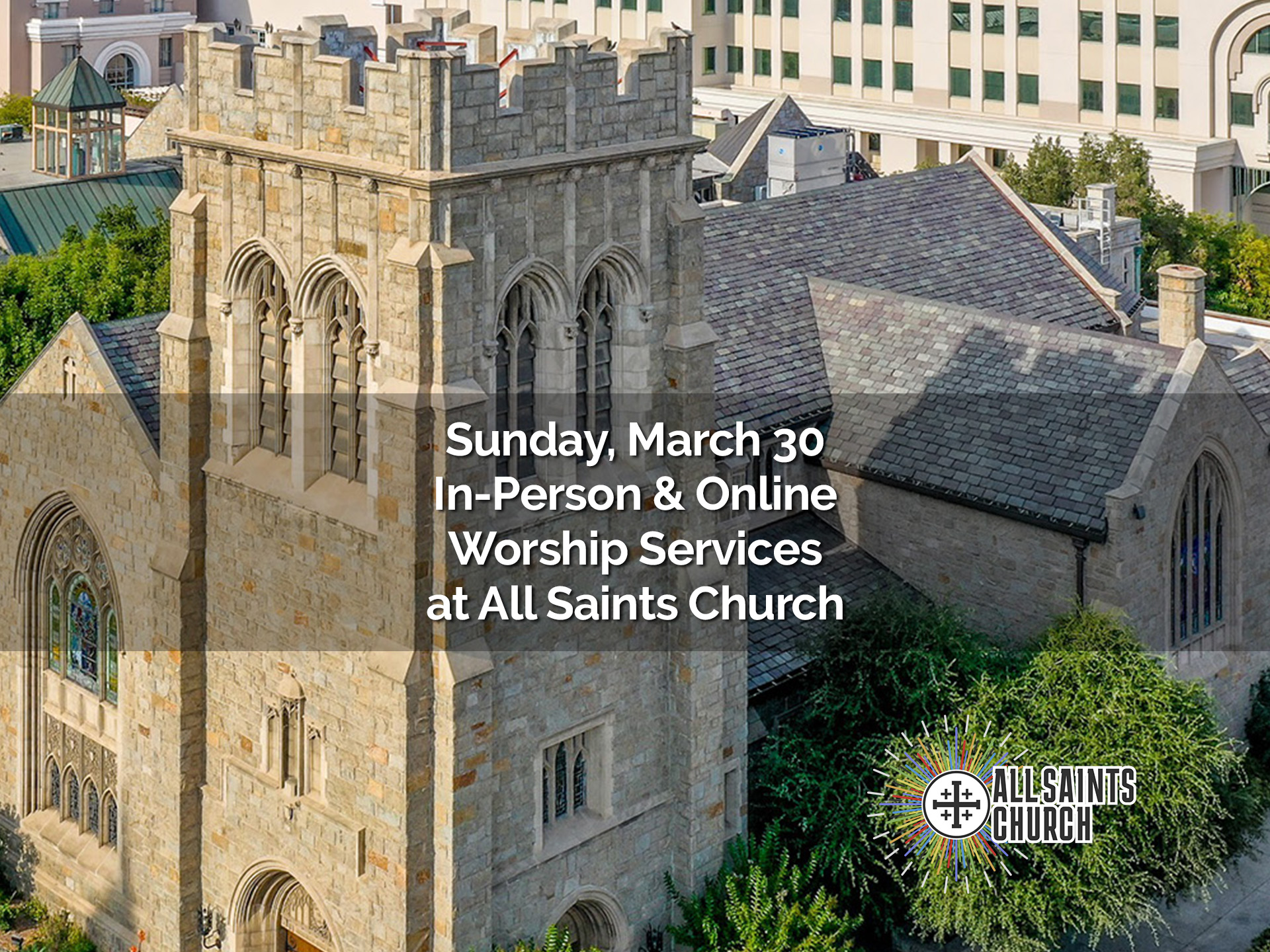The Gospel isn’t meant to be gulped down on Sunday morning, but gnawed on through the week so it really becomes a part of us. You’ve got to work at it, like a dog with a good bone! Here’s the Gospel for this coming Sunday — the Fourteenth Sunday After Pentecost — with food for thought about community, humility and accountability … Gnaw away!
Fourteenth Sunday After Pentecost: Matthew 18:15-20
Jesus said, “If your sister or brother should commit some wrong against you, go and point out the error, but keep it between the two of you. If she or he listens to you, you have one a loved one back; if not, try again, but take one or two others with you, so that every case may stand on the word of two or three witnesses. If your sister or brother refuses to listen to them, refer the matter to the church. If she or he ignores even the church, then treat that sister or brother as you would a Gentile or a tax collector.
The truth is, whatever you declare bound on earth will be bound in heaven, and whatever you declare loosed on earth will be loosed in heaven. Again, I tell you, if two of you on earth join in agreement to pray for anything whatsoever, it will be granted you by my Abba God in heaven. Where two or three are gathered in my name, I am there in their midst.
The Backstory – What’s Going On Here?
The lectionary again skips over a big chunk of Matthew (all of Chapter 17 and half of Chapter 18). Chapter 17 is the story of the Transfiguration and a healing and an argument — sandwiched around another prediction of Jesus’ death. But it is the first part of Chapter 18 that is most important for setting the stage for this reading.
Jesus begins to teach about the community of the church, and the defining characteristic of greatness being humility.
“Whoever becomes humble like this child is the greatest in the kingdom of heaven. Whoever welcomes one such child in my name welcomes me.” 18:4-5
The central ethic of the community of Christ is humility, self-offering for the sake of all. He goes on to say that humility is so critical — and that it is so critical that we not be stumbling blocks to each other in being humble — that even death is preferable to getting in the way of the humility of the community and its members.
Jesus then tells the parable of the lost sheep — the story of the infinite worth of every “little one,” every member of the community.
Put in this context, the ethic in this reading is about how each member of the Christian community must in humility hold each other accountable to humility. That every member of the community matters so that you can’t just “let it pass,” — lest we become lost to God and lost to one another.
A few things to chew on:
Our behavior matters. Jesus doesn’t say “if another member of the church sins really badly against you” but “if another member of the church sins against you.” That’s because our behavior matters. It has ripple effects. A sin against a member of the church — something that damages the humility and self-giving nature of one — is not just against the person but against the whole church because it shapes how we are as an entire community. That’s why there is also a ripple effect to the responsibility. If going in private doesn’t work, widen the circle. If that doesn’t work, widen the circle further. It’s important because the effects ripple out in the same way. But it’s also important because we are called to love each other deeply enough to take the time to hold each other accountable in humility and love.
What does it mean to observe this commandment of community with humility? Not to with secret glee point out all the faults of another but remembering that we are always called to “take the log out of our own eye” first. Remember the goal is a community that is at peace with one another in the self-giving, humbling love of Christ. This is not “let me tell you what is wrong with you.” This is “I seek peace with you, and this is where I have experienced you breaking peace with me and within this community.” In Christ, there is always an implicit invitation to be humiliated ourselves, to recognize our own role in being a stumbling block, our own role in breaking peace — and together in seeking that peace of Christ for us and the whole church.
This is a difficult passage about excommunication — as is the piece we skipped about “if your hand or your foot causes you to stumble, cut it off and throw it away.” Communities that rightly value Jesus’ inclusivity are especially pained by these proscriptions, but they are absolutely critical. And it is critical to note (and the parable of the lost sheep drives this home) it is not about rejection but about being clear about preserving a healthy body and being clear that the invitation is for everyone to be a part of it in health. These ethics combined with the parable of the lost sheep remind us that we can remove ourselves from the community by virtue (or vice) of our actions — and that is what happens when we refuse to live the loving ethic of humility and obedience to Christ upon which the community is founded. If Christ is about healing, relapse into illness sometimes happens. But the dream is always for return.
Try This:
This reading calls us to love each other enough to hold one another accountable for straying away from a path of humility — as a way of building a community of peace, not as a path to self-righteous vindication!. This week, take some time each day to consider who you are not at peace with. Where has sin happened that has broken relationship. Where are you called to change and be more humble and where do you need to be honest about where the other has wounded you (hint: think in terms of “I statements.”) Then at least one time this week …. go have the conversation.
Write This:
Jesus says: “Again, I tell you, if two of you on earth join in agreement to pray for anything whatsoever, it will be granted you by my Abba God in heaven.” This is an extraordinary statement. And, frankly, one we have not found to be true. There are plenty of times we have prayed in groups for a specific outcome – say the healing of ourselves or a loved one, or finding a job – and that has not come to pass. This week, I invite you to journal about prayer. What has your experience of prayer been? What are your struggles with it? What efficacy has it had in your life? What questions do you have?
House Rules
“For where two or three are gathered in my name, I am there among them.”
This is not a conjuring spell.
Jesus is not saying the way to make him magically appear is to have two or three people gather — a sort of first-century “Wonder Twin powers activate — Form of Jesus Christ!” or, for the Harry Potter generation, “Accio Jesus!”
Jesus is also not saying that if you’re by yourself, you’re on your own and out of luck.
This verse is not a conjuring spell.
This verse is about what happens to us when we gather in Jesus name.
We are each parts of many different communities, and each one has different rules for behavior. As citizens, we have a set of rules known as the law. At work, school and in our families, we have additional rules that further proscribe our behavior.
And then there is the church. When we gather as the church — in even the smallest of gatherings, two people, three people — it is as if Jesus was right there in our midst. The standard for behavior is to love one another as he loves us. That means:
The Great Commandment — loving one another as Christ loves us. Caring more for the other’s life than we do for our own.
Loving one another enough not to call each other on behavior that is unloving or harms that person, another person or the community.
Jesus being among us when we gather means we are not just the church when we gather on Sunday morning. It means whenever and wherever we gather, the rules for our community — the Great Commandment — are our operating system and supersede any other standard of behavior.
It means as followers of Jesus we don’t ask “is it legal” or even “is it nice.” The only standard that matter is, are we loving one another as Christ loves us. Are we acting as if Jesus was not just standing with us but as if the other person is Jesus.
It means whenever we gather in Jesus name, we are nothing less than the Body of Christ and individually members of it. And that, and no other way, is how we are called to behave.
. . . . . . . . . . . . . . . . . . . . . . .
Check out the rest of Sunday’s readings
The Lectionary Page has all of the readings for this Sunday and every Sunday – just click here.
Collect for Sunday: Pray this throughout the week as you gnaw on this Gospel.
Grant us, O God, to trust in you with all our hearts; for, as you always resist the proud who confide in their own strength, so you never forsake those who make their boast of your mercy; through Jesus Christ our Lord, who lives and reigns with you and the Holy Spirit, one God, now and for ever. Amen.
Want to read more?
“The Text This Week” is an excellent online resource for anyone who wants to dive more deeply into the scriptures for the week.
Gnaw On This is a weekly publication by Mike Kinman, the Rector of All Saints Church.



